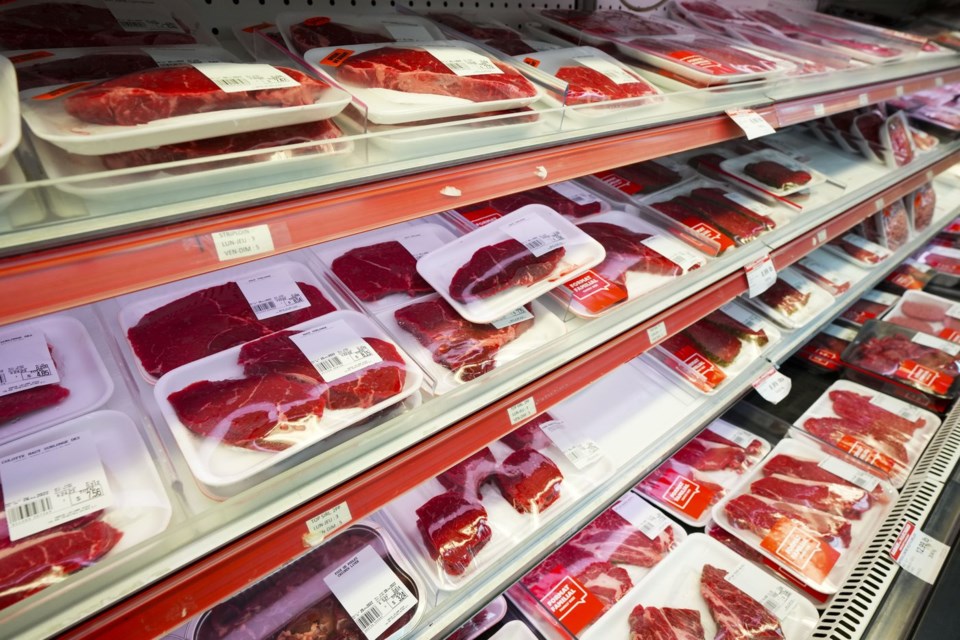OTTAWA â The Canadian Meat Council is warning that the Liberal governmentâs legislation to ease the movement of goods and services within Canada could actually undermine red meat exports.
Lauren Martin â senior director of public affairs for the council, which represents the federally licensed meat industry â said the bill could lead the federal government to recognize provincial rules for inspecting meat processing facilities as equal to federal standards.
"The way it's currently written is that it deems all provincial standards as equivalent to federal standards for the purposes of removing interprovincial trade barriers," she said.
âThe fact that C-5 deems the provincial inspection system as equivalent to the federal inspection system is a big red flag for us because they're not equivalent."
Meat processing rules are different across the country and only federally licensed facilities can prepare product for interprovincial and international trade.
Martin said the vast majority of meat products in Canada are processed through the federal inspection system, while about five per cent is processed under provincial rules.
While many of the rules are extremely technical in nature, one big difference between federal and provincial regulations is that federally licensed facilities must always have federal inspectors present.
The council warns any suggestion that food safety standards are being watered down could be viewed with alarm by Canadaâs trading partners â and Canadaâs red meat industry is heavily export-dependent.
"That is a way in which we could jeopardize our international trade relationships," she said.
A position paper produced by the council suggests that audits by foreign trading partners would "not accept the level of food safety scrutiny at provincial plants." It warns this could "risk our access to international markets, including the U.S."
Canada is a net exporter of beef and pork. Canada sends more than half of its beef abroad and as much as 70 per cent of its pork, Martin said.
Industry anxiety over the bill comes as Canada faces down both a trade war with the U.S. and Chinaâs 25 per cent tariffs on pork â retaliation for 100 per cent tariffs Canada placed on Chinese electric vehicles last year.
âWith two of our major global customers, we have a trade friction, trade issues, trade barriers. It's a really challenging time for the red meat industry,â Martin said.
Health groups also warn that the legislation could lead to unintended consequences from provincial rules displacing federal ones for products such as asbestos and tobacco.
But Internal Trade Minister Chrystia Freeland's office said the federal government doesn't intend to dispense with any regulations if it would lead to serious health and safety concerns.
âFree trade within Canada is about Canadians trusting each other. If a steak is safe to eat in Calgary, we should be confident that the same steak would be safe to eat in Saskatoon,â said spokesperson Laura Scaffidi.
âWhere it is deemed there are serious health and safety concerns for Canadians, the government of Canada can keep those federal regulations in place.â
Since the legislation provides an overall framework to reduce red tape, those details will have to be sorted out when bureaucrats draft regulations for the new law â a process that also triggers consultations.
Franco Naccarato, executive director of Meat & Poultry Ontario, has pushed for decades to break down interprovincial rules in Canadian agriculture. He said he sees opportunities in the new legislation to give consumers access to more domestic meat products.
"There should be some standard that provincial plants demonstrate that they're meeting the same outcomes as the federal plants, and if they can do that ⦠then they should be able to trade across provinces," he said.
"There are other jurisdictions that have two-tier systems and manage it quite well. There's no reason we can't do that in Canada."
Al Mussell is a senior research fellow at the Canadian Agri-Food Policy Institute who authored a paper on the subject. He said that a broader interprovincial meat trade could be managed through standards for critical health and safety control points in facilities.
He said some of Canada's international trading partners have also devolved some of their agricultural rules to lower levels of government. He cautioned, however, that Ottawa should be careful about adjusting those rules.
"This kind of thing is going on elsewhere, but of course because we have such a strong exporting interest, we have to be very careful that other countries don't get the impression that the provinces have some sort of a different treatment,â he said.
The House of Commons has passed the bill, which was introduced just a few weeks ago, and the Senate has until Friday to hold a final vote on the legislation.
This report by The Canadian Press was first published June 24, 2025.
Kyle Duggan, The Canadian Press



